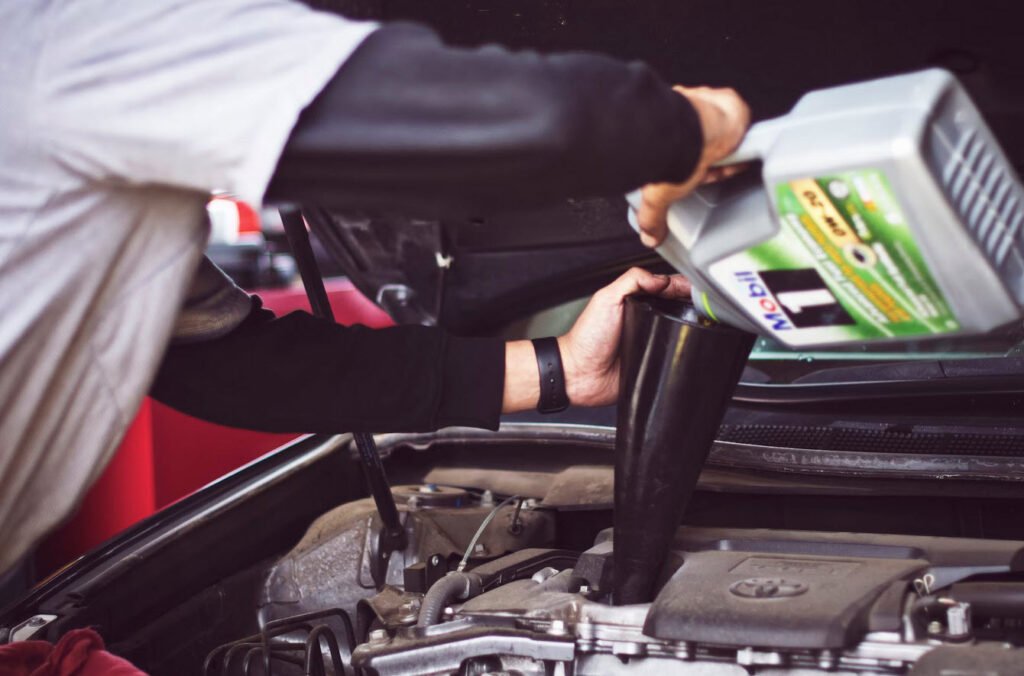
Finding a reliable mechanic is a crucial aspect of responsible car ownership. A good mechanic goes beyond fixing vehicles – they communicate effectively, charge fair prices, stay current with automotive technology, and prioritize customer satisfaction.
This checklist provides valuable tips to help you identify a mechanic who meets these standards, ensuring that your vehicle receives the care it deserves.
- Start Early and Build Relationships
- Seek Recommendations from Friends
- Look for ASE-Certified Mechanics
- Check for Additional Training Certificates
- Evaluate Competence and Honesty
- Inquire About Replacement Parts Brands
- Avoid Choosing Based on Low Prices Alone
- Beware of Shops Offering Both Diagnosis and Repair
- Don’t Yield to Tow Truck Pressures
1. Start Early and Build Relationships
Begin your search for a trustworthy mechanic before you actually need one. Having the time to conduct a thorough search allows you to build a rapport with the repair shop and gain familiarity with the staff. Establishing this relationship in advance can be particularly reassuring in emergency situations when major repairs are necessary.
2. Seek Recommendations from Friends
Consult friends about their experiences with repair shops. However, don’t blindly accept recommendations. Inquire about the mechanic’s competence, communication skills, reliability, and honesty. Personal recommendations provide valuable insights into the customer experience.
3. Look for ASE-Certified Mechanics
Consider mechanics who are certified by the National Institute for Automotive Service Excellence (ASE). While certification doesn’t guarantee competence in every aspect of auto mechanics, it is a reliable indicator of a certain level of skill. ASE-certified professionals have passed rigorous exams, demonstrating their commitment to excellence.
4. Check for Additional Training Certificates
Top-notch mechanics stay current with the latest automotive technology through regular training. Look for additional certificates on the walls of the repair shop’s office or waiting room. Inquire about the ongoing training the shop owner and employees attend to ensure they are up-to-date with industry advancements.
5. Evaluate Competence and Honesty
Ask how the shop handles situations where a vehicle tests okay on all equipment but still has issues. A reputable mechanic should acknowledge such scenarios and explain their approach, such as consulting technical service bulletins published by automobile manufacturers. Be cautious of mechanics who claim they’ve never encountered this situation.
6. Inquire About Replacement Parts Brands
Ask the repair shop about the brands of replacement parts they use. If you’re unfamiliar with the names, contact an auto parts store to inquire about the quality of those manufacturers. High-quality replacement parts contribute to the longevity of repairs.
7. Avoid Choosing Based on Low Prices Alone
Never select a repair shop solely based on low prices. Dishonest estimates or the use of cheap parts may compromise the quality of repairs. Consider the overall value and quality of service offered by the mechanic.
8. Beware of Shops Offering Both Diagnosis and Repair
Be cautious of repair shops that provide both diagnosis and repair services. Such shops may have a vested interest in finding issues to repair, potentially leading to unnecessary work. Opt for an independent diagnostic shop for an annual checkup to gain unbiased insights into your vehicle’s condition.
9. Don’t Yield to Tow Truck Pressures
If your car breaks down on the road, resist the pressure from tow truck drivers to take your vehicle to their “favorite” mechanic. Stick to recommendations from sources you know and trust, even if your regular mechanic doesn’t handle the specific repair needed. Your established network of recommendations is more reliable than impromptu suggestions.
Conclusion
Finding a good mechanic is an investment in the longevity and performance of your vehicle. By following this checklist, you can identify a mechanic who not only possesses technical expertise but also prioritizes clear communication, honesty, and customer satisfaction. Building a strong relationship with a reliable mechanic ensures that your car is in capable hands, giving you peace of mind on the road.








